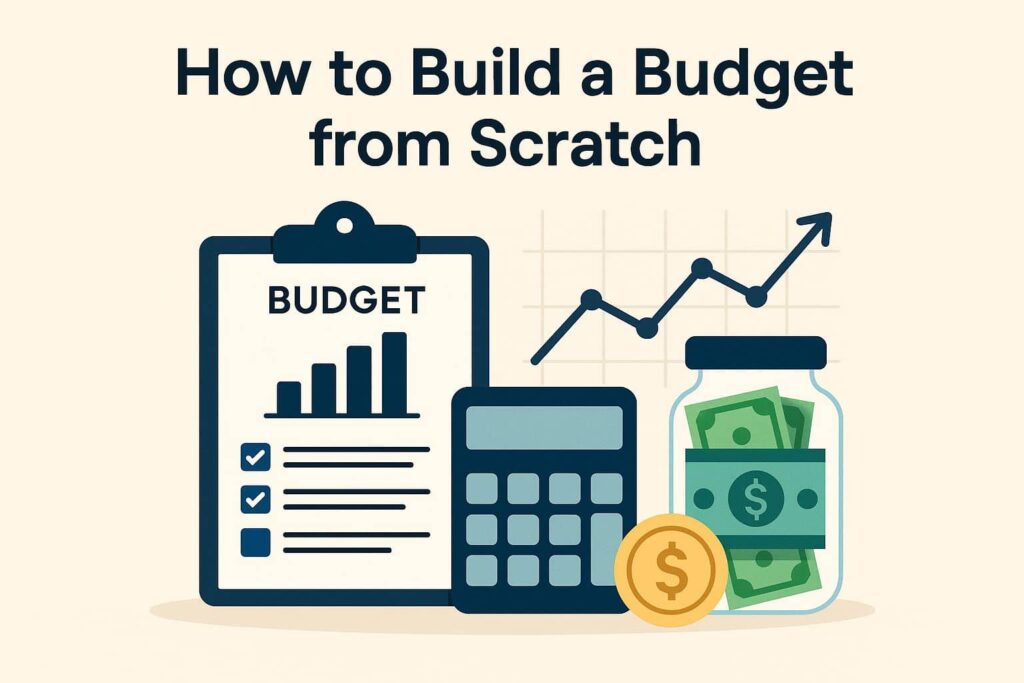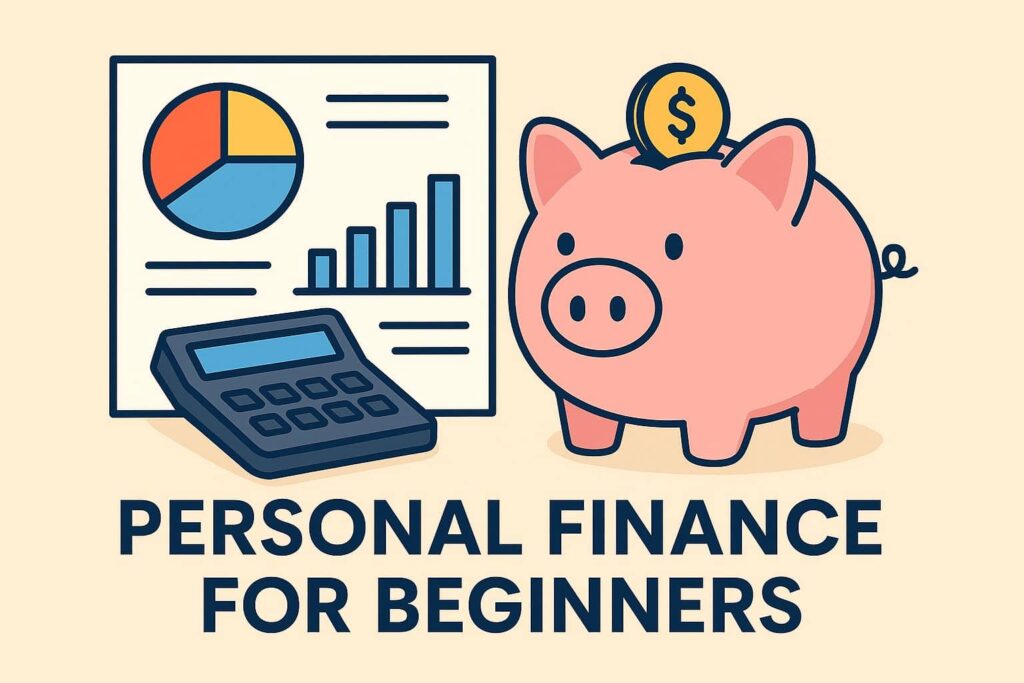Why Interest Rates and Credit Scores Matter
In the world of personal finance, few terms are as important for beginners as interest rates and credit scores. These two factors determine how much you pay for loans, credit cards, and even mortgages. For anyone just starting their financial journey, understanding how interest rates affect credit scores is critical.
Beginner’s Finance is all about making smart decisions from the start. If you ignore how interest rates impact your borrowing and repayment habits, your credit score could suffer. On the other hand, learning how to manage your money wisely will set you on the path to long term financial health.
What Is a Credit Score ?
For those new to Beginner’s Finance, a credit score is a three digit number that reflects your creditworthiness. It is used by banks, lenders, and even landlords to determine how risky it is to lend you money or approve your applications.
The factors that shape your credit score include:
• Payment history – whether you pay bills on time.
• Credit utilization – how much of your available credit you use.
• Length of credit history – how long you’ve had credit accounts.
• New credit applications – how often you apply for new credit.
• Types of credit – a mix of credit cards, loans, and other accounts.
Understanding these basics is essential in Beginner’s Finance because your credit score directly affects the interest rates offered to you.
How Interest Rates Are Determined
Interest rates rise and fall depending on economic conditions. Central banks (like the Federal Reserve in the United States) adjust base rates to control inflation and stimulate or slow down the economy.
For beginners, this means:
• When interest rates are low, borrowing is cheaper, and people often take on more loans.
• When interest rates are high, borrowing becomes expensive, and managing debt gets harder.
The connection between interest rates and your personal credit score lies in how you handle your debt when these rates change.
Impact of Interest Rates on Credit Card Usage
Credit cards are the first financial product many beginners use. When interest rates rise, credit card interest (APR) increases too. This means carrying a balance becomes more expensive.
• If you pay late or carry high balances, your utilization ratio rises, which can damage your credit score.
• If you pay in full each month, rising interest rates won’t directly hurt your score, but they will still affect your wallet.
For beginners, this makes it vital to understand how credit cards work and how side effects from interest rate changes can influence your credit standing.
How Interest Rates Affect Loan Repayments
Student loans, car loans, and mortgages all become more expensive when interest rates climb. This can indirectly hurt your credit score:
• Late Payments: Higher monthly payments increase the risk of missing deadlines. Late payments are the single biggest factor lowering credit scores.
• Debt to Income Ratio: While not part of your score, lenders consider it, and higher interest costs may push this ratio higher.
• Long Term Debt: Paying more in interest extends how long it takes to reduce balances, which can negatively affect your credit profile.
Beginner’s Finance teaches that preparing for rising rates helps protect your credit score over time.
The Connection Between Interest Rates and Credit Scores
While interest rates don’t directly appear in credit score formulas, they affect the behaviors that shape your score:
1. Timely Payments: Higher rates make it harder to keep up with bills.
2. Credit Utilization: Rising costs often mean higher balances on cards.
3. New Credit Applications: When loans get expensive, some people apply for multiple cards or loans, which can lower scores.
4. Credit Mix: Managing both revolving credit (cards) and installment loans becomes trickier when rates rise.
So even though your credit score doesn’t measure interest rates directly, the financial pressure from high rates can hurt your score if you’re not prepared.
Beginner’s Finance Tips to Protect Credit Scores
To keep your credit score strong during times of high interest rates, beginners should follow these practical strategies:
1. Always Pay on Time – Even one late payment can drop your score significantly.
2. Pay More Than the Minimum – Avoid carrying balances that build interest.
3. Track Your Utilization Ratio – Keep credit card use under 30% of your limit.
4. Avoid Unnecessary Credit Applications – Each application adds a hard inquiry to your report.
5. Build an Emergency Fund – This protects you from relying on expensive debt when unexpected costs arise.
6. Refinance Wisely – If you already have debt, look for opportunities to refinance at lower rates before they climb higher.
7. Educate Yourself – Beginner’s Finance isn’t just about saving money, it’s about understanding how the financial system works.
Why This Matters for Beginners
For those just starting their financial journey, a credit score can feel like just a number. But in reality, it determines access to loans, rental housing, and even job opportunities.
High interest rates magnify the importance of financial discipline. If you ignore them, you could end up with expensive debt and a damaged credit score. If you manage wisely, however, you can build a strong financial foundation even in challenging times.
Building Financial Strength in Any Economy
Beginner’s Finance is about learning the ropes early and avoiding costly mistakes. Understanding how interest rates affect credit scores is one of the most important lessons. While you can’t control the economy or central bank policies, you can control how you manage your money.
By paying on time, keeping balances low, and avoiding unnecessary debt, you’ll protect your credit score even when interest rates are high. These habits may seem small, but they are the building blocks of financial freedom.
At the end of the day, interest rates will rise and fall, but smart side hustles, disciplined saving, and good financial habits will keep your credit score healthy no matter what.
You can read another article in the Beginner’s Finance category.
Understanding how interest rates affect credit scores is essential for beginners in personal finance. For more detailed guidance, you can visit Investor.gov – Credit Management.


